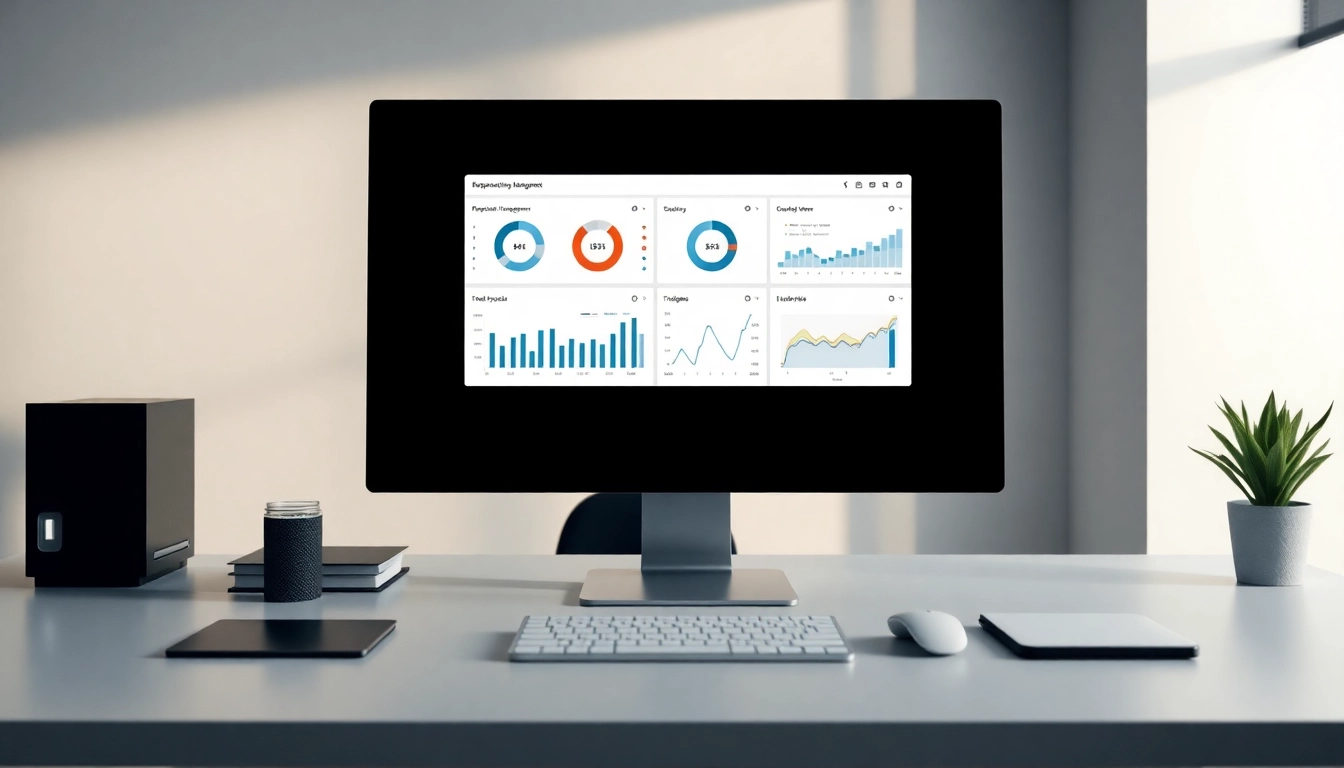Mastering Online Reputation Management in 2025: Essential Strategies for Building a Strong Digital Presence
In an increasingly digital world, your online reputation holds significant sway over personal and professional opportunities. Whether you’re a job seeker strategizing your career advancement or a business owner aiming to elevate your brand, understanding online reputation management (ORM) is vital. Effective ORM goes beyond mere reputation repair; it encompasses proactive strategies to shape perceptions, foster trust, and sustain a positive digital footprint. This comprehensive guide explores the core components, best practices, common challenges, and innovative tools to help you command your online presence confidently in 2025.
Understanding the Fundamentals of Online Reputation Management
What Is Online Reputation Management and Why Is It Essential?
Online reputation management involves monitoring, influencing, and controlling what appears about you or your brand across digital platforms. Its goal is to ensure that search engine results, social media profiles, reviews, and other online content accurately reflect your values, expertise, and professionalism. For job seekers, a robust ORM can increase interview invitations, while for brands, it is crucial for customer trust and loyalty. In today’s competitive landscape, a positive online image can be the difference between securing a dream role or losing a promising client.
As digital footprints become the first touchpoint for employers and customers alike, neglecting ORM can lead to reputational damage that is difficult and costly to repair. Regularly engaging in ORM activities helps you stay ahead in the digital game, ensuring that when someone searches your name or company, they find compelling, favorable content.
Key Components of Effective ORM Strategies
- Online Presence Audit: Systematic review of all digital assets including social profiles, reviews, articles, and search engine results.
- Content Creation & Promotion: Generating positive, authentic content that showcases expertise, values, and community involvement.
- Reputation Monitoring: Using advanced tools to track mentions, reviews, and relevant keywords in real-time.
- Engagement & Response: Responding promptly and professionally to feedback, whether positive or negative.
- Crisis Management: Pre-emptively planning responses to potential reputation threats and handling crises swiftly.
Common Challenges in Managing Your Online Reputation
Despite the importance, ORM presents several hurdles:
- Negative Content Domination: Negative reviews or false information appearing prominently in search results.
- Inconsistent Brand Messaging: Disjointed narratives across platforms eroding credibility.
- Lack of Control over User-Generated Content: Unfavorable reviews, comments, or misinformation posted by third parties.
- Rapid Spread of Information: Viral negative campaigns that are hard to contain.
- Resource Constraints: Limited tools or expertise to effectively monitor and respond.
Overcoming these challenges requires strategic planning, technological tools, and active engagement—topics we delve into in the subsequent sections.
Implementing Proven Techniques for Reputation Enhancement
Creating Positive Content and Engaging Your Audience
Content remains king in ORM. From blog posts and articles to social media interactions, generating authentic positive content can substantially shift perceptions. Share success stories, industry insights, philanthropic efforts, and client testimonials to highlight your values and expertise. Consistent posting across platforms, like LinkedIn and Twitter, keeps your audience engaged and your reputation vibrant.
For job seekers, showcasing achievements through case studies, project highlights, or thoughtful articles demonstrates your competence and thought leadership. Business owners benefit from content that emphasizes corporate social responsibility (CSR), innovation, and community involvement, creating a compelling narrative that attracts favorable attention.
Monitoring and Responding to Customer Feedback
Real-time reputation monitoring tools like Brand24, Mention, or Google Alerts enable you to track mentions and reviews as they happen. Promptly addressing negative feedback with professionalism and empathy can defuse potential crises. Acknowledging mistakes, offering solutions, and demonstrating a commitment to improvement reinforce trust and showcase accountability.
Utilizing Top ORM Tools and Software
In 2025, leveraging AI-driven ORM platforms like Qualtrics ORM, NetReputation, or Reputation Defender streamlines monitoring and enhances response quality. These tools provide customized dashboards, sentiment analysis, and alerts, empowering you to maintain control over your digital narrative efficiently. Combining manual engagement with automation optimizes reputation management efforts for maximum impact.
Handling Negative Content and Repairing Damaged Reputations
Tips for Suppressing and Removing Negative Search Results
Suppressing adverse content involves elevating positive material through SEO techniques, such as creating authoritative blogs, press releases, and optimized social profiles. Removing negative reviews is possible through official channels—contact review sites, dispute inaccuracies, and encourage satisfied customers or colleagues to leave positive feedback.
In some cases, it’s feasible to use reputation repair companies like NetReputation or Trustpilot, which specialize in removing or pushing down unwanted content. Search engine reputation management may also involve disavowing malicious backlinks or implementing domain authority strategies to push negative content off the first page of search results.
Building Trust Through Transparency and Consistency
Transparency fosters trust. Publicly addressing issues transparently—public apologies, open dialogues, or detailed FAQ pages—demonstrates integrity. Consistent messaging across all platforms and regular updates reinforce a stable, reliable image.
Case Studies of Successful Reputation Recovery
Consider the example of a tech company that faced a viral customer service crisis. By issuing sincere apologies, publishing detailed corrective actions, and actively engaging on social media, they managed to restore their reputation within months. Key to success was transparent communication, prompt response, and strategic content promotion, illustrating that even serious setbacks can be reversed with disciplined ORM efforts.
Leveraging Social Media and Digital Platforms Effectively
Optimizing Social Profiles for Better Visibility
Profiles should be complete, professional, and keyword-rich. Use consistent branding, high-quality visuals, and engaging bios that highlight your expertise or offerings. Incorporate industry-specific keywords to enhance visibility in searches. Regular activity and interaction foster ongoing engagement and positive perception.
Engaging with Stakeholders to Strengthen Brand Perception
Active engagement—including responding to comments, participating in discussions, and sharing relevant content—humanizes your brand. Building genuine relationships on platforms like LinkedIn and Twitter encourages advocacy and generates positive word-of-mouth.
Integrating ORM with Broader Digital Marketing Campaigns
Seamless integration with SEO, content marketing, and branding initiatives amplifies ORM impact. Ensuring that all messaging aligns with your core values creates a unified digital footprint that reinforces reputation strength over time.
Measuring Success and Sustaining Your Online Reputation
Tracking Key Metrics and KPIs in ORM
Key performance indicators include sentiment analysis scores, review ratings, search engine ranking for branded keywords, social engagement rates, and response times. Regularly analyzing these metrics identifies areas for improvement and confirms the efficacy of your ORM strategy.
Adapting Strategies to Evolving Digital Trends
The digital landscape shifts rapidly—developments like AI, voice search, and new social platforms require agility. Stay informed and adapt your ORM tactics accordingly, such as leveraging voice SEO or influencer collaborations to enhance your reputation.
Long-term Reputation Management Best Practices
- Consistent Content Creation and Engagement
- Continuous Monitoring and Response
- Building a Community of Advocates
- Regular Reputation Audits and Updates
- Proactive Crisis Preparedness and Response
Reputation is a long-term asset that requires ongoing attention. Institutionalizing ORM procedures into your daily operations ensures enduring success and resilience in the face of challenges.



